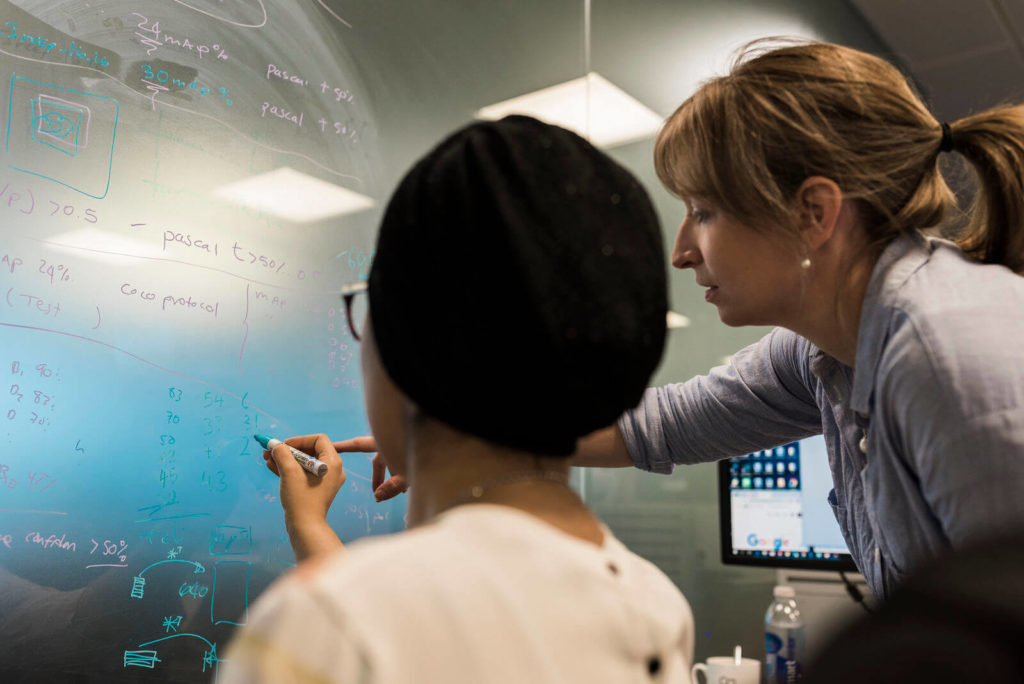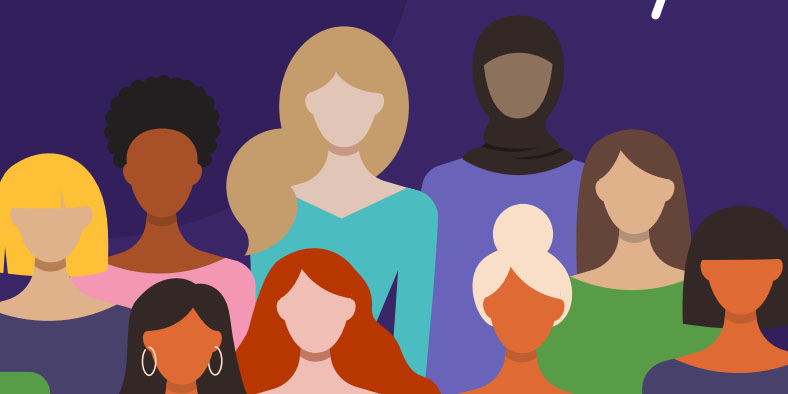- 24 June 2020
- Imagination Technologies
To mark Women in Engineering Day (23 June 2020), in this blog post, Elliot Taylor, a hardware design engineer at Imagination, gives his personal views on the importance of diversity.
Recently I spoke to a few people about the importance of male allies being a contributing factor in creating a work environment that promotes diversity and equal opportunity for all. Interestingly, I found the subject to be somewhat contentious. As we mark International Women in Engineering Day this year (23 June 2020), I wanted to write an article to challenge the scepticism around male allies and encourage us to all work together to make engineering a field that embraces diversity and champions equality.
Why Diversity Matters
Why does diversity matter? Briefly putting to one side the morality issue, studies have continually shown that a diverse range of employees increases company innovation and profitability. For example, when comparing the EBIT margin of companies around the world, those with the highest level of executive-level gender diversity were 21% more likely to outperform those with the lowest. This is significant; but why is this so? To answer, I think it is best to first understand what diversity is.
Although it might seem obvious, we are all different. We all come from different backgrounds; we have different beliefs, different hobbies, and different tastes. These differences define who we are and enable us to have unique perspectives when tackling problems. By excluding any one group based on gender, beliefs, race, or anything else, you are reducing this diverse pool of backgrounds and therefore limiting the range of potential solutions when problem-solving.
There is of course, a morality factor in creating an equal opportunity environment and this should not be overlooked. In my opinion, and I am sure the opinion of many, no one should be unfairly prevented from achieving their aspirations by anybody else. No one should feel unhappy, uncomfortable or unsafe due to another’s actions. No one should be told what they can and cannot do based on their background, race or gender. People should be judged on their actions and achievements, not by the way they look or where they are from. These statements might seem obvious to most but for many, the reality is different.
Therefore it is paramount that we work together, to make changes locally and at a societal level to achieve equal opportunity. The key here is us all working together, and this is where the concept of male allies comes in.
Approximately 51% of the UK population are women yet only 12% of all engineers in the UK are women. There is a clear discrepancy between these figures and of course, there are a multitude of reasons behind this. What is also clear is that a huge proportion of the population is underrepresented in engineering and therefore, the diversity of backgrounds, and with it, the diversity in thought processes, are also being missed.
What Are Male Allies and Why Are They Important?
The concept of male allies is simply having everyone working together towards the common goal of equal opportunity. It is not to suggest that any one person is prohibiting this goal. Rather, it is celebrating the fact that we all have an opportunity to support and reinforce concepts of equality throughout our lives. Sadly, I have noted stigma towards the concept of male allies by some who feel they are being blamed for equality issues. I have also noted them trying to shift the blame onto others with claims such as, “there is nothing stopping women from being engineers”.
Neither of these statements is true and unfortunately, they propagate a notion of “them and us” which is counterintuitive in our aim of equal opportunity. The aim of having male allies is not to place blame; it is about understanding that there is currently a huge difference in the number of male and female engineers, recognising this as a resolvable issue and everyone coming together as one to work on solutions. If everyone is united and working together to help solve an issue, the easier it will be to resolve.

Recognising our unconscious biases
With this in mind, as a male engineer, what can I do to help improve the current situation? What can we all do as male allies?
We are all human and therefore, inherently we all have unconscious biases and preconceptions. I was intrigued by what my own biases might be and so I volunteered to attend a workshop organised by Imagination Technologies on unconscious bias. One of the most interesting things I took away from the workshop is that we all have biases. It is perfectly normal and could perhaps be explained by our need to quickly and easily process the huge quantities of information we experience in our daily lives, a phenomenon known as social categorisation. However, it is also a greatly limiting factor when it comes to equal opportunity. It is, therefore, up to us to identify our biases, recognise that it is normal to have them, and then work on removing them in the interest of equality.
Research suggests that we are drawn to people “like us” which can create a divide between those we unconsciously perceive as different. In the workplace, this could manifest as trusting the opinions of some people over others for reasons other than their ability, or giving tasks to the same people, while leaving others to stagnate. Alternatively, it could be hiring someone because they have a similar background to oneself. Again, it must be stated, this is likely to be completely unintentional as it is just a factor of the human psyche. But that does not mean that we can’t work together to prevent these scenarios from happening.
I think we all agree that the workplace should be somewhere that we all feel welcome, safe and happy. Our actions can have a profound effect on others, even if they felt harmless at the time. Jokes that were meant in jest can make others feel uneasy or targeted. However, it should not be the victim that has to accept these words even if they were meant as simple banter. If we notice something that doesn’t feel right, if we notice someone that feels uncomfortable, we should open communications about it. Talking things through and understanding each other will help create an environment which caters to everyone as best it can, so that we can all feel welcome and enjoy ourselves with our colleagues. Meetings and group conversations can often become somewhat chaotic; it is what happens when people feel passionate about a subject. Talking over each other is fairly commonplace and unfortunately, it is often quieter voices that get lost in the mix. If this is continual, it can often deter people from trying to put their ideas forward, which is detrimental to the diversity of solutions put forward whilst problem-solving. We can all work together to make sure everyone’s voice is heard and that everyone’s solution is explored. This will push innovation forward.”
It all starts at school
Working together to promote equal opportunity is not limited to the workplace. It is today’s school children who will be deciding what subjects to specialise in and what university courses to aim towards. If we want to increase the proportion of female engineers, we must first address the lower proportion of females taking engineering degrees at university. Imagination has created a school program in partnership with our Women in Tech (WiT) group to promote STEM subjects for everyone in schools. We want to demonstrate how engineering is accessible to everyone, how engineers shape our future and how exciting the field really is.
Through speaking to my friends, I was shocked to hear that barriers are still being placed around which subjects children should be taking based on their gender. This could be in the form of encouraging certain subjects for boys and others for girls or simply questioning subject choices. These apparently harmless actions can help enforce stereotypes and root a divide in the subjects chosen by each gender. I know that this is very far removed from the actions of many parents, who actively support their children, wherever their interests lie. However, it does not mean that it is not happening so programs such as Imaginations are helping alleviate this by inspiring young minds at school, showing them they have every opportunity to thrive in an industry that really is changing the world.
Why I’m a Male Ally
I am proud to be a male ally. For me, it means supporting an important change in attitudes towards equality for female engineers. A change that will bring about greater diversity in the field of engineering, which in turn will lead to exciting new innovations and more profitable companies. I do not want to live in a world of barriers, preconceptions and bias. Every individual has a right to their aspirations. To drive these changes, it involves everyone working together. With your help, equal opportunity for all can be achieved.






